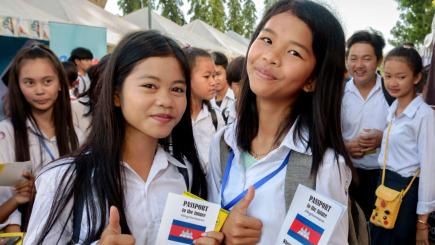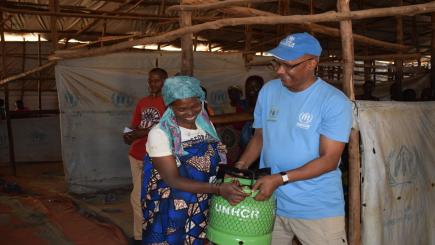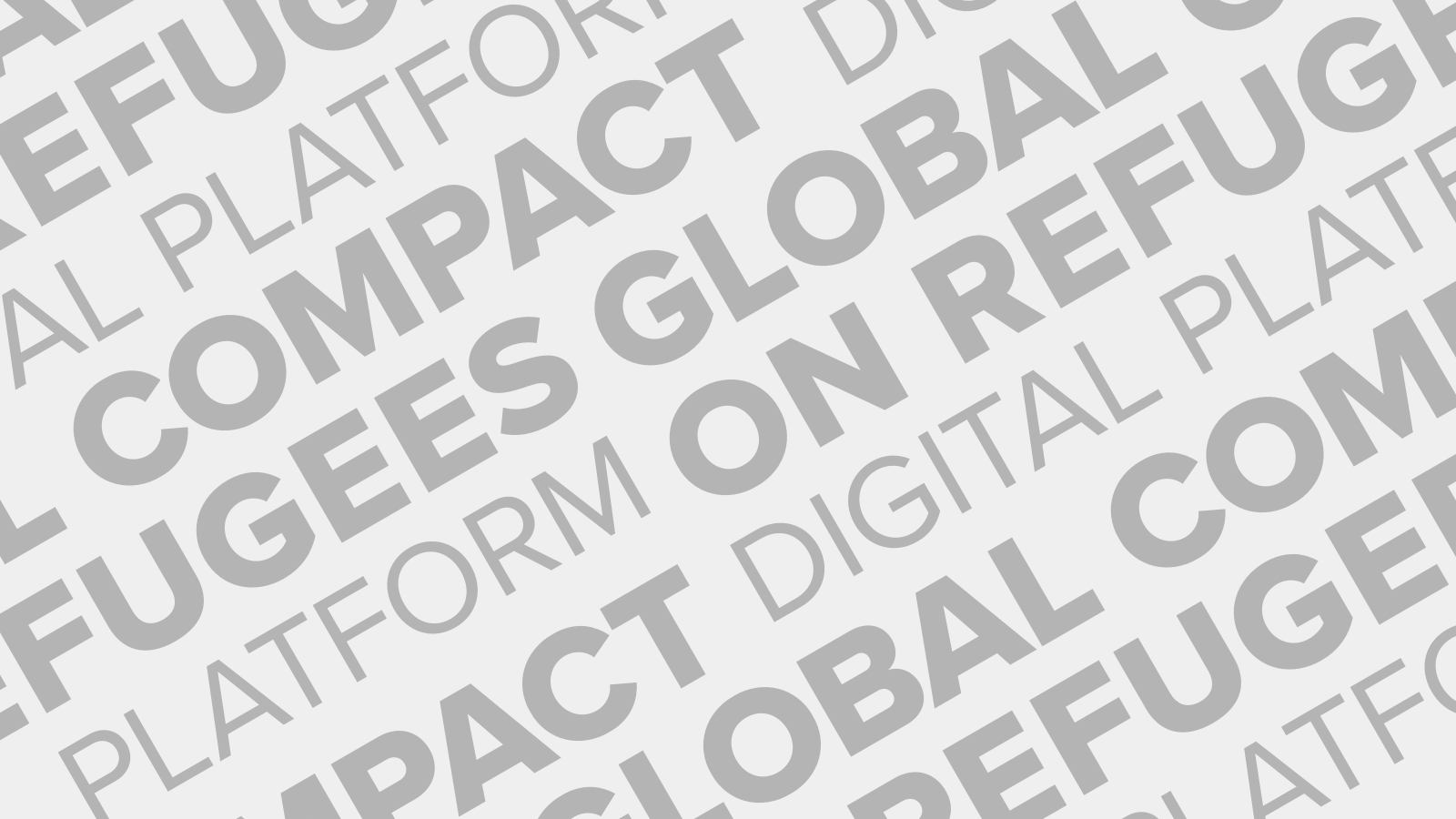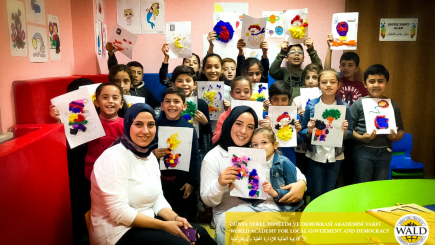
© World Academy for Local Government and Democracy (WALD)
The project in brief
Implemented by
World Academy for Local Government and Democracy (WALD)
Country
Istanbul/Turkey
Duration
The project began in January 2019 but it should considered as a continuation of WALD’s partnership with UNHCR targeting municipalities and refugees since 2017.
The project will continue during 2020.
Description
World Academy for Local Government and Democracy (WALD) is a non-governmental organization that was established in 1993 to serve for public interest on the basis of the requirement to review, continuously discuss and develop the principles taken as basis by local governments, departing from the idea that democratic local governments are the fundamental institutions which will ensure the establishment and maintenance of democracy and human rights.
This project by WALD aims at improving social cohesion and refugee self-reliance through enhancing refugees’ access to quality services provided by local authorities, skills-building activities, participation in local consultative and participatory platforms, and access to formal economy.
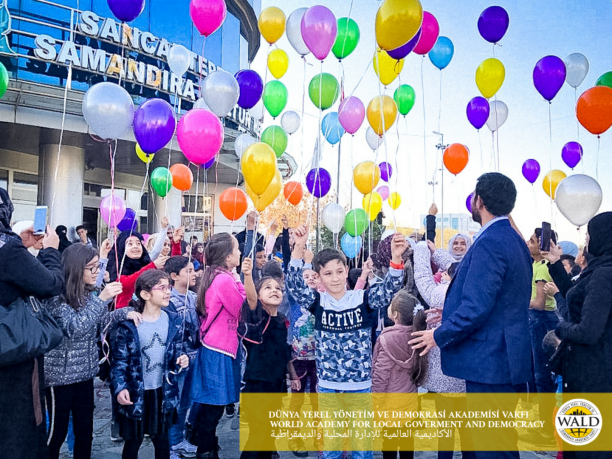
© World Academy for Local Government and Democracy (WALD)
Project aims
The Project aims to support the capacity of district municipalities in extending available services to refugees, whilst strengthening vertical and horizontal social cohesion in Istanbul. In this respect, the Project has aimed to achieve:
- Expanding the services provided to the refugees of the district municipalities, disseminating accurate information to refugees and to support capacity development of the municipalities.
- Strengthening social integration and access to livelihoods through Turkish language courses provided to refugees.
- Supporting workplace registration and work permits for refugees with a focus on sustainability and development.
- Facilitating the participation and representation of refugees in the City Councils.
- Increasing district level coordination among institutions working with refugees.
- Conducting social cohesion activities to strengthen quality interaction between the refugee and the host community.
Resources used
The municipalities in Turkey provide wide range of services including but not limited to provision of social services and aid; skills-building and vocational training; infrastructural services; information dissemination and referrals.
Besides their services, municipalities establish and support consultative and participatory platform for district residents to voice their demands, needs, and feedback with local authorities.
According to Municipal Law (No.5393, article.13), regardless of citizenship bonds, all district residents can participate and benefit from municipal mechanisms which also establishes the framework for WALD and its project activities. In that regard, WALD works to strengthen local referral mechanisms by establishing social protection desks in order to ensure that refugees have optimal access to necessary services and cooperates with UNHCR and municipalities to organize and lead district level coordination as well as social cohesion activities.
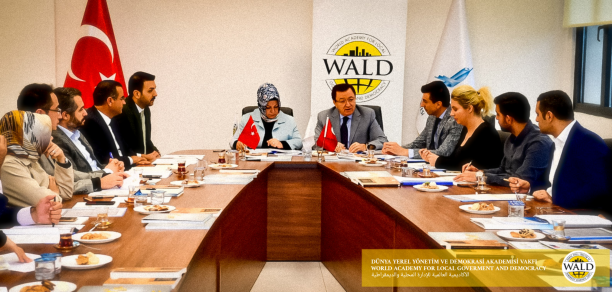
© World Academy for Local Government and Democracy (WALD)
Main activities of the Good Practice
The good practice meets two objectives of the GCR: “ease the pressures on host countries” and “enhance refugee self-reliance”.
As per easing the pressure on host countries; the Project endorsed a multi-stakeholder approach, and supported 12 district municipalities. In Istanbul’s urban context; capacitating the often first-responder institution, namely municipalities, was crucial. In that respect; the Project facilitated the liaison among municipalities and local and refugee communities, and aided communication and coordination with local governmental and non-governmental service providers. The Project also mainstreamed protection and social cohesion to national social service mechanisms.
As per enhancing refugee self-resilience; the Project expanded urban protection space by referring over 48.000 refugees to service providers, through social protection desks functioning under municipal auspices. The Project also advocated and increased the inclusion of refugees to district-level cultural and social activities while also fostering meaningful refugee participation to local-level consultancy mechanisms, with due regard to women’s assemblies.
Under education and livelihoods components; 118 refugees received language training, which aimed to strengthen refugees’ capacity to approach service providers, access to livelihoods opportunities, and ease social and economic inclusion. Finally, 46 workplaces attained formal business registration and work permit; which not only aimed to foster self-resilience and to contribute to the eliminating protection concerns arising from informal work, but also intended to enhance social cohesion, and to benefit local economy.
Partners
- UNHCR
- Avcılar, Bağcılar, Beylikdüzü, Gaziosmanpaşa, Kağıthane, Küçükçekmece, Sancaktepe, Sultangazi, Şişli, Ümraniye, Maltepe and Pendik Municipalities
- District representatives of central government
- NGOs
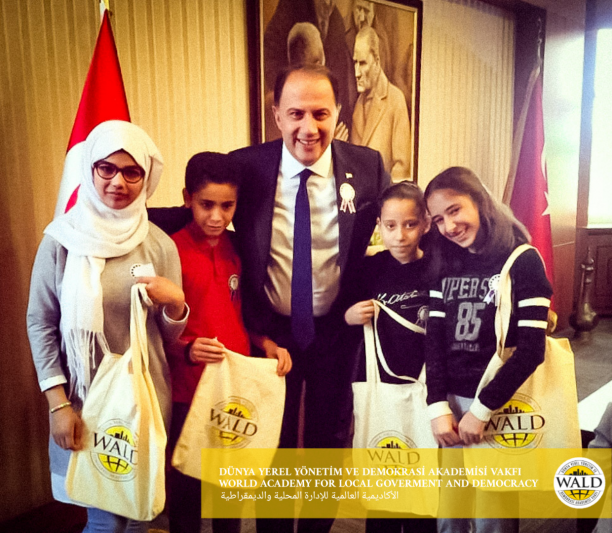
© World Academy for Local Government and Democracy (WALD)
Challenges and how they were overcome
Per national regulations; the central administration allocates budget to district municipalities based on the population of Turkish citizens, leaving the additional refugee population and consequently stretching local resources out of consideration. Therefore; refugee response and institutional resilience may not always be a priority for municipalities, particularly during the election cycle where electoral expectations need to be managed, which was a prominent challenge in 2019.
Should some municipalities not agree with the approach and the scope of the project, WALD explored working opportunities with other municipalities where refugees commonly reside in Istanbul. After the renewed Istanbul elections, WALD and UNHCR accelerated advocacy visits with the Mayors and Deputy Mayors. As a result, the indicators of the 2019 Project were successfully completed.
Results of the Good Practice
Establishing Social Protection Desks under the municipalities has shown that this strategy was a win-win situation both for municipalities and refugees. While on the one hand, the protection space for urban refugees was enhanced with locally tailored complementary interventions, on the other hand municipalities have also benefited from this initiative by taking a unified step towards providing services for the refugees and upholding peaceful co-existence among its inhabitants.
Next steps
In 2020, the project will continue in 11 districts with a focus on sustainability and development, focusing on business registration and work permits.


